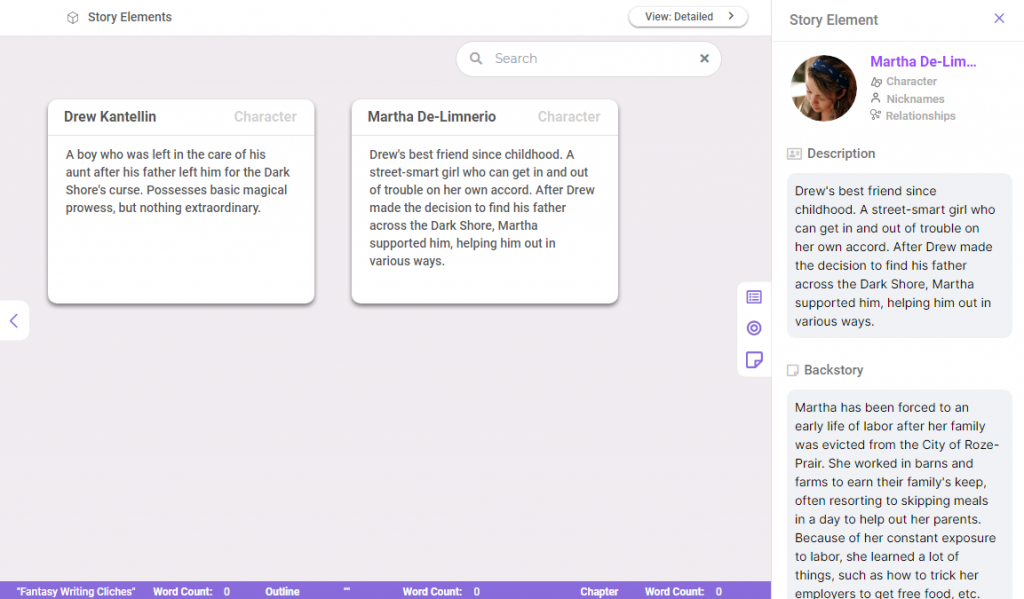Avoid These Fantasy Writing Clichés

An orphaned peasant living from hand to mouth stumbles upon a weakly old man (who is revealed to be a great sage upon their death on Chapter 2), who prophesied that this measly peasant will someday save the world from the rule of the evil villain. With not so much as an explanation or a refusal (maybe a little bit until circumstances force them to go through the “only remaining way”), the peasant grows strong (enough?) to march unto the villain’s doorstep and just defeat him, like no one before him has ever done before.
Trite and bog-standard fantasy stories have similar premises that are almost predictable; you might have read the same plot from another book. The fantasy genre is rife with clichés that have been used, abused, and overused across the majority of its titles that readers develop an allergic repulsion upon the sheer mention of the prophecy, or the chosen one, or the damsel in distress.
Although some of these clichés are fantasy staples that cannot be easily pried off of the genre, there are some that are abhorrent to a grand majority that you’re better off just steering clear of them. In this post, we will be talking about fantasy writing clichés, and which ones are so bad you simply cannot afford to have them in your stories.
Trope or Cliché?
While reading about clichés, you must have also stumbled upon tropes, and how they differ from clichés. Simply put, a trope is a recurring element in pieces of literature, whether it be a plot device, themes, settings, and many others.

Clichés are also very similar in definition; they are recurring elements that are present in many stories. However, clichés are specifically those that are overused across the genre, which often indicates the lack of creativity in presenting it to the reader. In other words, clichés are tropes overdone by many authors with lack of originality, hence having a negative connotation to it.
Tropes are good to have, if not required to have in any story. It provides familiarity to the readers and sets certain expectations on them. What makes them even more amazing is when these expectations are twisted away, increasing the impact of certain plot points. However, when familiarity becomes too predictable, that’s when they become clichés.
When does a trope become a cliché, exactly? That can be a tough question to answer, as there is no objective line that separates them. What may seem like a cliché to someone may be refreshing to someone else. Additionally, there might be a good reason that a cliché is ever so present across many texts; it’s a well-loved element that readers have come to expect out of the genre, such as the medieval Europe setting of most epic fantasy stories.
However, there are clichés that are appallingly egregious that you should just simply steer clear of, especially if you have a hard time adding a creative twist to it. We’ll be listing some of those clichés that you want to avoid to make your story one of a kind.
Fantasy Writing Clichés to Avoid
1. The Prophecy/The Chosen One
Starting from the Arthurian prophecy of the sword in the stone, the Prophecy has been the most popular way of foreshadowing the future of the protagonist, likely to defeat the great bad villain and reclaim their rightful claim to the power/throne.

However, this trope has not aged very well, and they are often seen as a lazy way of foreshadowing, to the point that it actually makes the story predictable. The Prophecy also often implies a singular path to the protagonist’s success, barring out other avenues which could have been explored for creativity.
The Prophecy also ties very similarly to the Chosen One cliché, as the Prophecy often dictates that someone will gain the power to fulfill it. The fantasy genre is full of these prophesied heroes, and often there is no logical sense for the “chosen one” to even fulfill the prophecy aside from it being their “fate.” This trope has been overdone so much it has become one of the clichés to avoid for your story.
How to avoid: simply avoid placing prophecies of the chosen one on your story. Let your main character go through the process of saving the world despite not being motivated by an obscure prophecy. As the saying goes, heroes are made, not born.
2. The Good vs Bad Dynamic
There is comfort in dealing with simple topics, like the protagonist being “good” and the villain being “bad.” However, as we all know, the spectrum of good and bad is neither linear nor clear-cut. Having your story revolve around the false dichotomy of good and bad can make your characters bland and uninteresting.

You need to acknowledge that characters, even your main one, can be morally ambiguous, and that they do not always have a heart of gold, like your childhood fairy tales. Villains are not unreasonable antagonists who want to wreck havoc for the sake of it; they can have motivations, forced upon them by circumstances of their life.
How to avoid: allow your main character to be flawed. Let them make mistakes and do bad things. Being morally gray does not only make them interesting, but it also adds an extra layer of complexity to their personality that can make them relatable and more human-like. Then do the same for your villain.
Write a backstory for your important characters and develop their personality from there. Knowing what they went through helps you understand why they would do things this way or that way, sometimes with no regard to the goodness or the badness of the said way.
3. Damsels in Distress
In many epic fantasy stories, the brave hero passes many trials and tribulations to save the princess previously kidnapped by the great big bad villain. These Rapunzel/Sleeping Beauty tropes worked wonders for children aged 12 and below, but it will not charm fantasy readers. Damsels in distress might have been the easiest way to add romance to your novel, but it has lost its touch in the genre and must be avoided at all costs.

A specific variation of damsels in distress that is greatly frowned upon by readers are seemingly independent and strong women who suddenly fail helplessly when the main character comes around. Gone are the days that people find it charming for a woman to depend on a man for their safety/security, especially if they were fully capable before meeting the said man.
How to avoid: write better female characters. Characterization of the female cast in literature today has evolved to the point that they are as capable as their male counterparts, and sometimes even more. They’re not the usual helpless females in our fairytale stories, but rather independent characters that can save their own skin from danger.
To help you write amazing female characters (or just characters in general), LivingWriter provides you with the robust Story Elements feature. You can write detailed personalities about your female characters to no end, maybe even provide them with a great backstory to flesh out their personality even more.

If you feel like you’re reaching a point that your female character is becoming a damsel in distress, Story Elements can pop out right at the side of your manuscript to remind you that they are bad-ass and don’t need any saving from a male main character.
4. The Magical Artifact
The adventurer embarks on the grand journey to find the Holy Grail, or the Sword in the Stone, or the Wand of the Great Wizard who Died Eons Ago That Inherited His Power. No matter what it is, most fantasy novels seem to be obsessed with the concept of a singular item which can save the whole world. Bonus points if it was part of the Prophecy!

However, like the Prophecy, tying your entire plot around a single magical artifact restricts plot and character development. Novels regarding these items have been written, rewritten, and overwritten by many others, and you’re not being original by employing such a plot device.
How to avoid: entirely avoiding writing in magical artifacts can be hard, but making them secondary to the plot/characters is not. You should avoid making the quest of getting this item the centerpiece of your story. There can be other ways to achieve your main character’s goals that do not revolve around an item rotting inside an old cave.
5. Fantasy Jargon
It’s a fantasy world, so there’s going to be a lot of new stuff that’s simply not present in our current world. If you are an architect-writer, then you have definitely done a large part of your writing just building the fantasy world of your dreams. From the culture to the flora and fauna, you have them all named as uniquely as you can.

However, if half of your story uses custom vocabulary of things that may have equivalent terms in our ordinary language, then you’re going to annoy many readers. Immersion to the fantasy world does not require you to alienate from known jargon and learn an entirely new language from scratch. Sometimes, familiar words work, and they do work well.
How to avoid: fictional vocabulary is part and parcel of the fantasy genre, but you should hit the good middle in terms of amount. Too much, and you might need your readers to have a crash course about your novel before understanding anything. Too little, and your fantasy world might not end up being fantastical as you’d like. With proper worldbuilding, exposing your fictional world bit by bit for the entirety of the story, you can easily avoid info-dumping jargon to your readers.
Forgivable Cliché 1 – The Medieval Europe Setting
Most fantasy worlds have been modeled after medieval Europe, with all the glory of kingdoms, soldiers, and castles. Although it is definitely a cliché, it’s one we’re willing to look past.

The Middle Ages setting is a staple trope of fantasy, if not one of its most defining traits. Fantasy readers come to expect bows, arrows, swords, together with wands and witchcraft in their fantasy novels, and it would be remiss of you as the author to deny them of this expectation.
However, we want you to acknowledge that there are more possibilities for a fantasy world outside of European influences. Falling back to the usual orcs and dragons may be par for the course, but drawing inspiration from less-known mythologies and cultures, although hard and unfamiliar, can help you carve out your own originality in the fantasy space.
Forgivable Cliché 2 – The Orphan
The Chosen One has to go out and explore the world that they’re supposed to save, but they’re not going to be able to do that if their parents won’t allow it. What can we do about that? Well, fantasy writers simply slip in the “orphan” card, and everything will go swimmingly from there.

The Orphan has been an overused trope in fantasy, often to avoid the dragging problems of family that might distract your main character from their main quest. Readers are understandably sick of this cliché, yet there’s something about a nobody who rises from nothingness and gains power through sheer character development that just hits you right where it’s good.
We say it’s forgivable, simply because the potential for character development among orphan characters is great (hence why it has become a trope in the genre). However, we also want you to try being different from the norm for a change. There can be many ways to incorporate parental authorities into fantasy adventures without them becoming obvious hindrances.
Write Less Fantasy Writing Clichés with LivingWriter
Clichés can sound bad to a budding writer; after all, you want to stand out from the crowd. However, you should also recognize that clichés were beloved tropes before and maybe even until they became prominent across the genre. Especially for forgivable clichés, the execution of the plot may matter more than their presence. Additionally, you can implement these tropes, only to subvert the cliché expectations later on in the story for maximum appeal.
To help you out on having less fantasy writing Clichés, you can check out LivingWriter and its wide arsenal of features that aid budding fantasy writers like you to craft that one-of-a-kind fantasy manuscript! Try LivingWriter now!